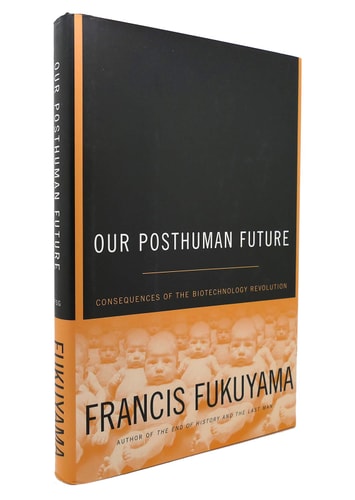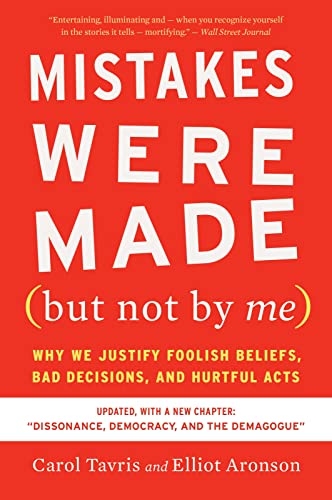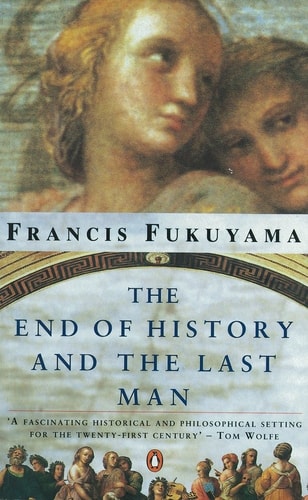
In 1989, Francis Fukuyama made his now-famous pronouncement that because "the major alternatives to liberal democracy had exhausted themselves," history as we knew it had reached its end. Ten years later, he revised his argument: we hadn't reached the end of history, he wrote, because we hadn't yet reached the end of science. Arguing that our greatest advances still to come will be in the life sciences, Fukuyama now asks how the ability to modify human behavior will affect liberal democracy.To re-orient contemporary debate, Fukuyama underlines man's changing understanding of human nature through history: from Plato and Aristotle's belief that man had "natural ends," to the ideals of utopians and dictators of the modern age who sought to remake mankind for ideological ends. Fukuyama persuasively argues that the ultimate prize of the biotechnology revolution-intervention in the "germ-line," the ability to manipulate the DNA of all of one person's descendents-will have profound, and potentially terrible, consequences for our political order, even if undertaken by ordinary parents seeking to "improve" their children.In Our Posthuman Future, our greatest social philosopher begins to describe the potential effects of exploration on the foundation of liberal democracy: the belief that human beings are equal by nature.Francis Fukuyama is Bernard Schwartz Professor of International Political Economy at the Paul H. Nitze School of Advanced International Studies, The Johns Hopkins University. In 2002, he was appointed to the President's Council on Bioethics. He is the author of The Great Disruption: Human Nature and the Reconstitution of Social Order, Trust: The Social Virtues and the Creation of Prosperity, and The End of History and the Last Man, among other works. He lives in McLean, Virginia.A New York Times Notable BookA Los Angeles Times Best BookA Choice Outstanding Academic TitleIn Our Posthuman Future, Fukuyama describes the potential effects of the biotechnology revolution on the foundation of liberal democracy: the belief that human beings are equal by nature. In 1989, he made his now-famous pronouncement that because the major alternatives to liberal democracy had exhausted themselves, history as we knew it had reached its end. Ten years later, he revised his argument: we hadn't reached the end of history, he wrote, because we hadn't yet reached the end of science. Arguing that our greatest advances still to come will be in the life sciences, Fukuyama now asks how the ability to modify human behavior will affect liberal democracy.To reorient contemporary debate, Fukuyama underlines man's changing understanding of human nature through history: from Plato and Aristotle's belief that man had "natural ends" to the ideals of utopians and dictators of the modern age who sought to remake mankind for ideological ends. Fukuyama persuasively argues that the ultimate prize of the biotechnology revolution—intervention in the "germ-line," the ability to manipulate the DNA of all of one person's descendents—will have profound, and potentially terrible, consequences for our political order, even if undertaken by ordinary parents seeking to "improve" their children."Fukuyama has written an invaluable prescription for government regulation. Rarely has someone entering the policy arena so eloquently and precisely laid out the case for political control of emerging technology."—Robert Lee Hotz, Los Angeles Times Book Review"Fukuyama has written an invaluable prescription for government regulation. Rarely has someone entering the policy arena so eloquently and precisely laid out the case for political control of emerging technology."—Robert Lee Hotz, Los Angeles Times Book Review"Fukuyama gives a fascinating tour of the post-human sciences and their implications, free of the dogma from both sides of the political spectrum that has accumulated around these breakthroughs. Fukuyama accepts the premise that life-prolonging technologi




